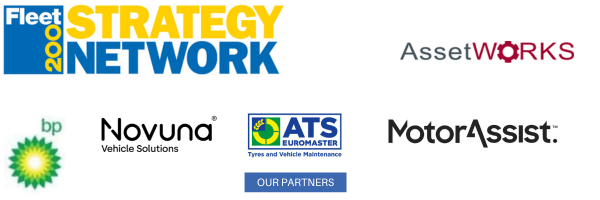When asked: "What plans does your business have in place for fleet decarbonisation? Is HVO fuel on your road map - are you currently using/planning to use it in the future?" fleets responded saying they didn't see "massive benefits" and highlighted that the cost of the fuel was also an issue.
Fleets shared their thoughts at the recent Fleet200 Strategy Network meeting in Barnsley:
Funding
When asked: "What plans does your business have in place for fleet decarbonisation? Is HVO fuel on your road map - are you currently using/planning to use it in the future?" fleets responded saying they didn't see "massive benefits" and highlighted that the cost of the fuel was also an issue.
Fleets shared their thoughts at the recent Fleet200 Strategy Network meeting in Barnsley:
- Tested HVO and didn’t see “massive benefits” from using it. One fleet mentioned the cost of the fuel was an issue, and that it was 35% higher than diesel per litre. The argument was made that if there’s no cost benefit, what other benefits do you have apart from kudos and good publicity?
- The fleet said they received “good publicity out of it” and won awards but couldn’t see a greater increase in MPG, only a slight increase. Fleets also mentioned the issue of reliability of supply and uncertainty about the green credentials of HVO – of how sustainable and environmental is it?
Plans to decarbonise
- One fleet manager said they were “scared to death” about transitioning to electric. The issue was raised with the product availability of the range of LCVs and the issue surrounding the 3.5 tonne derogation.
- It’s not just “is it a vehicle, it’s, what’s going to happen in terms of the licence?” – it isn’t just one single issue – there’s also the issue of the range the payload – it’s a “massive problem”, especially with vehicles that tend to go to home addresses every night, as opposed to vehicles that return to a depot, said one fleet manager.
- To overcome this issue, another fleet manager said they surveyed all van drivers and asked if they had off-road parking and if they own their property and those that did, had installed charging units at their homes. The question arose, what about the other drivers who didn’t have access to off-road parking or owned their home?
- Network and range are problematic – issues surrounding electric vehicle (EV) charging, being a performance-driven organisation, the focus is on what can be achieved in a day and within the miles. Also, the fleet has a high number of engineers on standby, issues surrounding range if they have been out all day and get called out at 10 at night, and no time to charge.
- A potential solution to this could be booking a time to schedule within the day to charge, whilst they are onsite.
- Another fleet said they had the opposite issue, where they had to charge overnight indoors due to the nature of what’s inside the vehicles – which insurance companies are “against”.
- One fleet said it is looking at opening its charging units to the public but only at certain times of the day – not for income generation, but to provide extra chargers to an area that doesn’t have that many.
Funding
- Where do we get the money to bridge the gap in wholelife costs? Is it going to be that much cheaper? Said one fleet manager currently using outright purchase to pay upfront for the vehicle and the fuel.
Login to continue reading.
This article is premium content. To view, please register for free or sign in to read it.





















Login to comment
Comments
No comments have been made yet.